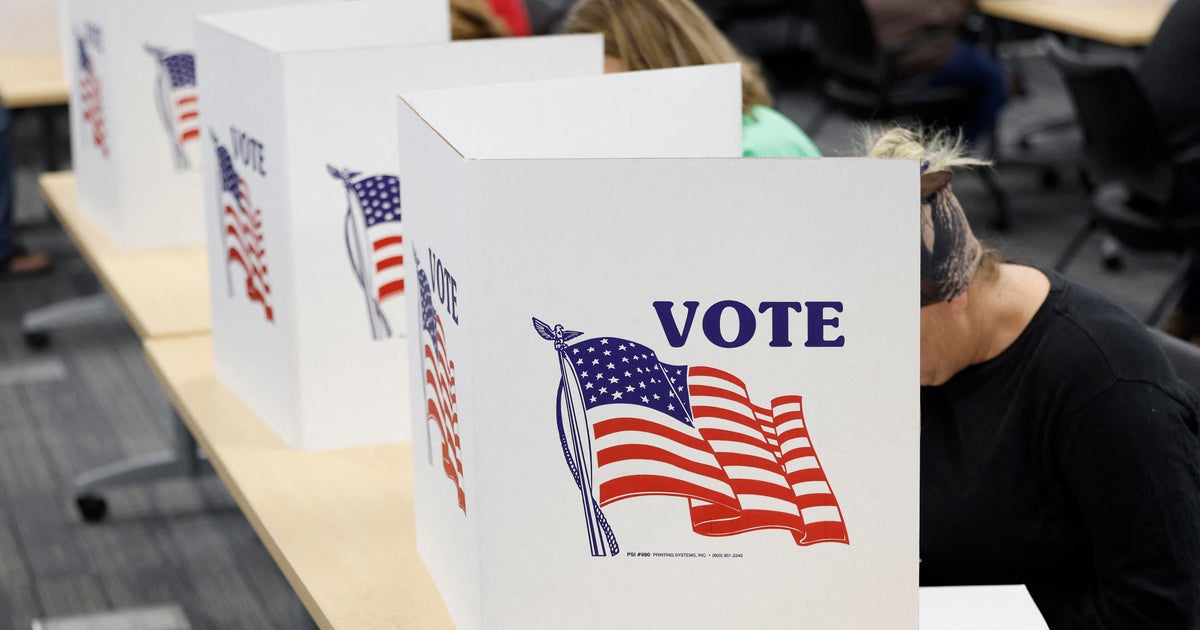CBS News
Why cocoa prices are soaring to record levels

Watch CBS News
Be the first to know
Get browser notifications for breaking news, live events, and exclusive reporting.
CBS News
How Latino voters could impact Election Day 2024 results

Watch CBS News
Be the first to know
Get browser notifications for breaking news, live events, and exclusive reporting.
CBS News
City of Milwaukee recounting some ballots, Wisconsin officials say

Watch CBS News
Be the first to know
Get browser notifications for breaking news, live events, and exclusive reporting.
CBS News
Live House election results for 2024 races

Hakeem Jeffries could make history if Democrats retake majority
House Minority Leader Hakeem Jeffries of New York could make history as the first Black speaker if Democrats win the majority.
It wouldn’t be the first time he’s made history. Jeffries became the first Black lawmaker to lead a party in Congress when he was elected minority leader in January 2023, succeeding former House Speaker Nancy Pelosi as the top Democrat in the lower chamber. His election also made him the first House Democratic leader to be born after the end of World War II.
Jeffries was first elected to Congress in 2012.
House GOP leadership to hold elections on Nov. 13
House Republicans will hold leadership elections on Nov. 13 after Congress returns from recess. It’s a quick turnaround because sluggish returns from California and races that are too close to call or are contested could blur the picture of which party has the majority on Nov. 13.
If Republicans lose control of the House, there could be a shakeup in GOP leadership. It’s unclear if House Speaker Mike Johnson of Louisiana would run for minority leader or if anyone would challenge him.
House Democrats haven’t said when they’ll hold their leadership elections.
— Scott McFarlane and Caitlin Yilek
GOP infighting a staple of the 118th Congress
Republicans took back control of the House in the 2022 midterm elections after four years of Democratic rule. But GOP infighting has made it difficult to govern with a razor-thin majority amid early retirements and the expulsion of Rep. George Santos, whose seat was later picked up by a Democrat.
In January 2023, former House Speaker Kevin McCarthy of California finally won the speaker’s gavel after 15 ballots amid a prolonged — and public — fight with conservatives who demanded concessions, foreshadowing the limits of his power over a fractured party.
His deal with far-right Republicans to allow a single member to trigger a no-confidence vote to remove the speaker came back to haunt him nine months later after he relied on the votes of House Democrats to temporarily avert a government shutdown. Eight Republicans voted with all Democrats to remove McCarthy, making it the first time in U.S. history a House speaker was ousted by such a motion.
Speaker Mike Johnson of Louisiana succeeded McCarthy after three weeks of chaos caused by the GOP’s inability to coalesce around a candidate. Though Johnson has faced similar issues as McCarthy and has had to rely on Democratic votes to pass legislation, he has survived in the role longer than his predecessor. Democrats stepped in to rescue Johnson from an ouster attempt in May.
House control last flipped during presidential election cycle in 1952
The last time control of the House flipped in a presidential election year was 1952. Republicans won the House and Dwight D. Eisenhower was elected to his first term in the White House.
Battle for control of the House
Of the 435 House seats on the ballot, about 40 are seen as competitive, according to the Cook Political Report, a nonpartisan election analysis site that considers 22 of those races toss-ups. Of those 22 seats, 10 are held by Democrats and 12 by Republicans. Of the other 21 competitive seats, 13 are lean Democrat and eight are lean Republican.
Republicans currently have 220 seats. Democrats have 212. There are three vacancies due to the deaths of Rep. Sheila Jackson, a Texas Democrat, and Rep. Bill Pascrell Jr., a New Jersey Democrat, and the early retirement of Rep. Mike Gallagher, a Wisconsin Republican.
For Democrats to take control of the chamber they’d have to hold on to their 212 seats and the two vacancies from deaths, as well as pick up four seats.
It’s unlikely to be that easy, however. Redrawn congressional maps in North Carolina mean three seats held by Democrats are poised to be easily won by Republicans.
But the swing toward Republicans is blunted in part by redrawn congressional districts in Louisiana and Alabama that are likely to be won by Democrats under the new lines.
— Caitlin Yilek, Hunter Woodall and Alexandria Johnson








